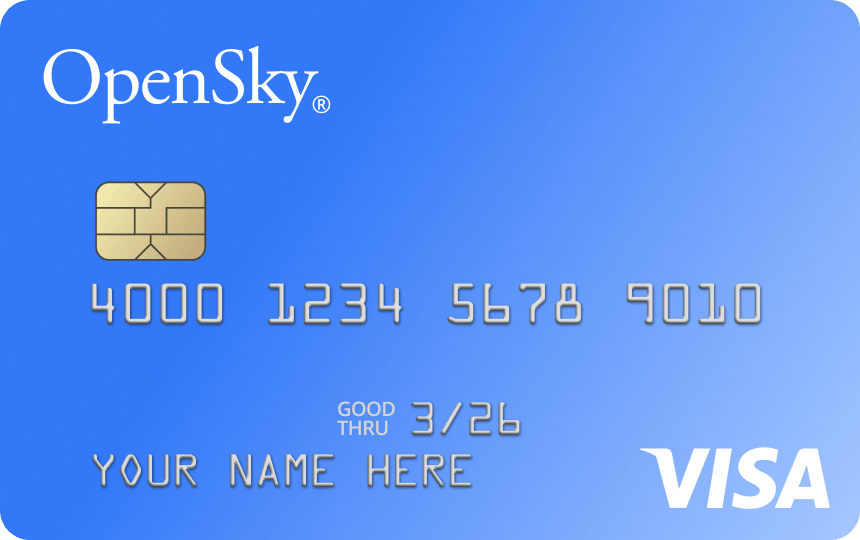In a Nutshell
Although a secured card requires a deposit, this type of credit card can be helpful for people who otherwise can’t open a line of credit. Secured cards can give you an opportunity to rebuild or build your credit if you know how they work.This offer is no longer available on our site: Citi® Secured Mastercard®
A secured credit card is a credit card that’s “secured” by money you deposit as collateral with the credit card issuer.
Secured cards are designed for people who are trying to rebuild or build credit. This can include those who have bad credit or no credit history at all.
Unlike a debit card or prepaid card, a secured card is an actual credit card. This means that the issuer of a secured card may share your activity, such as your monthly payment history, with the major credit bureaus — Equifax, Experian and TransUnion. By making on-time payments, this can help you build a credit history, improve your credit health and eventually upgrade to an unsecured no-deposit card.
Read on to learn about how secured credit cards work, getting approved, things to watch out for and next steps after getting a secured card.
- What are the differences between unsecured and secured credit cards?
- How can I apply and get approved for a secured credit card?
- How can a secured card help build credit?
- How do secured credit card deposits and credit limits work?
- Can I get my security deposit back?
- What are some of the drawbacks of a secured credit card?
- How do I transition to an unsecured credit card?
What are the differences between unsecured and secured credit cards?
Unsecured credit cards are cards that do not require a security deposit as collateral for approval. Generally, these cards look for a higher credit score for approval and, in exchange, offer advantages like lower interest rates, higher credit limits, and rewards.
Secured credit cards, on the other hand, require a deposit as collateral to secure the card with the issuer. While this requires setting aside money for the deposit — which can be difficult in some circumstances — it does make secured credit cards a more available option for someone with a lower credit score or building credit from scratch.
How can I apply and get approved for a secured credit card?
Aside from the required deposit, applying for a secured credit card looks similar to applying and getting approved for any other credit card. It is important to note that just because you can make the required deposit doesn’t mean you’re guaranteed approval for a secured card. For example, Capital One will decline your application if you don’t meet certain conditions, such as having a bank account.
Approval may be more likely with some secured credit cards than others, though. For example, Capital Bank, the issuer of the OpenSky® Secured Credit Visa® Card, doesn’t check your credit.
Make sure you thoroughly read the agreement for your secured card to be sure you understand all of the terms and conditions, including the fees and annual percentage rate.
How can a secured card help build credit?
A secured card can help you build credit in a number of ways, as long as the card issuer reports activity to the credit bureaus.
A credit card provides credit bureaus with information about how much credit you use and whether you repay what you owe. That’s why it’s important to try to pay your card on time and to make at least the minimum payment every time — it shows lenders you’re responsible. Those two factors weigh heavily in your credit scores.
Having an open credit line can also help boost your score by changing your credit utilization ratio. Increasing the total credit available to you while keeping your spending the same can help drive down your credit utilization ratio. If possible, try to keep your credit use ratio below 30%. Paying off your card in full every month can help you do that.
How do secured credit card deposits and credit limits work?
All secured credit cards require a security deposit. If you don’t have to give the issuer this collateral, then it’s not a secured card by definition.
In some cases, the deposit is saved in an interest-earning account tied to the secured credit card. But some deposits don’t earn a penny of interest.
The amount you’ll need to deposit if approved can vary by issuer and card. The Citi® Secured Mastercard®, for example, requires a minimum deposit of $200. That $200 secures a $200 credit line. For many issuers, your credit limit will be equal to the amount that you deposit.
Capital One, on the other hand, offers a $200 initial credit limit for its Capital One Platinum Secured Credit Card after you deposit $49, $99 or $200.
If you don’t have that much cash saved up, don’t fret — some issuers let you pay your deposit in chunks, rather than all at once.
A card issuer will sometimes boost your secured card’s credit limit without another cash deposit if you’ve handled your account well. This includes paying your bills on time and keeping your card balances below the credit limit.
Can I get my secured card security deposit back?
Many issuers only allow you to get your security deposit back when you close your account. And you’ll likely only be eligible for a full deposit refund if your account is completely paid off. If you default on your account, the credit card company may use your security deposit to pay off the balance.
But a few issuers have programs that allow you to “graduate” from a secured card to an unsecured card — returning your original security deposit in the process. If this happens, it’s generally after a period of demonstrating an ability to pay your bills on time and in full.
What are some of the drawbacks of a secured credit card?
Keep in mind that a secured card may come with an annual fee, along with an APR that’s higher than that of an unsecured card.
For example, the Capital One Platinum Secured Credit Card carries a variable purchase APR of 29.74%. By comparison, the variable purchase APR for the Capital One Venture Rewards Credit Card ranges from 19.99% - 29.24%.
Why may secured cards have higher APRs than unsecured cards? Generally, folks with less-than-stellar or nonexistent credit profiles end up with higher interest rates to offset the issuer’s risk.
Secured credit cards also generally have a lower credit limit when compared to unsecured cards. Another drawback to a secured card is that having some of your money tied up in a security deposit could be inconvenient for your budgeting.
How do I transition to an unsecured credit card?
Eventually you may decide you want to cancel your secured card if you can qualify for a solid unsecured card. In that case, what happens to the money you deposited to open your secured card?
Once you cancel your secured card, your deposit likely will be sent back to you if you’ve paid off your balance in full.
Note that if you’ve made on-time payments over a set period, some issuers may switch you to an unsecured card. This can sometimes happen without you even requesting it. But some issuers will bump you up to an unsecured card only if you ask.
One thing to consider before closing a secured card account: Generally, when you have a decrease in the total credit available to you, it can affect your credit scores. This is because one of the key components of your credit scores is credit card utilization, the ratio of how much you’ve spent in comparison to how much credit you have at your disposal.
Closing a card decreases your total available credit. If, after closing a card, you continue to spend at the same rate on other existing cards, it could drive your credit use ratio up. A higher credit utilization ratio could lead to lower scores.
That’s why it’s worth asking if you can shift the account to an unsecured version rather than simply closing the secured card account.
Once you have an unsecured card, you’ll want to make sure to keep up the good credit habits that helped you build your credit enough to qualify you for the card.
Next steps
While secured cards generally require a deposit and may not offer the best APRs, they can be helpful if you’re having trouble getting approved for a traditional credit card. Using a secured card can help you establish credit or improve your credit health, which in turn may help you qualify for an unsecured card in the future.
As you do your research into secured cards that fit your lifestyle, be sure to double-check the terms and conditions of each card so you know important information about the following:
- APRs
- Fees
- Deposit minimums and maximums
- The process for getting your deposit back
- Whether the issuer reports to the three major credit bureaus
- Whether you have the ability to graduate to an unsecured card
FAQs about secured credit cards
While there is no guarantee that getting a secured card will raise your score, regularly paying off your card in full and keeping the utilization rate below 30% can help build your credit history while possibly improving your credit score. This may even make you more eligible for an unsecured card with better terms down the line.
A secured card may be the best and only available starting point if you are either rebuilding your credit or starting from scratch, as the security deposit acts as a sort of insurance to the lender — they won’t lose money if you miss a payment or default. That said, unsecured cards often have better terms, rewards and credit limits so once your credit has been built up, it’s a good idea to shop around for an unsecured card.
If you are looking to rebuild your credit or establish a credit history from scratch, a secured credit card may be a good idea to explore further as they can be easier to qualify for. Even so, it is important as always to shop around and compare terms before making your decision.





